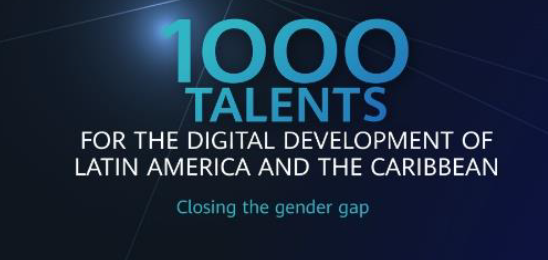CANTO Weekly Newsletter – BNamericas: 07/11/14
Trinidad & Tobago regulator investigates Digicel’s VoIP block – Trinidad & Tobago
Claro rolls out 4G LTE network in Dominican Republic – Dominican R.
Regulator meets with Jamaican telcos over VoIP app block – Jamaica
Celistics sees opportunity to tap other industries in LatAm – Regional
eMarketer boosts outlook for LatAm mobile ad spending – Regional
The information presented and opinions expressed herein are those of
the author and do not necessarily represent the views of CANTO
and/or its members
-----------------------------------------------------------------------------
Trinidad & Tobago regulator investigates Digicel’s VoIP block – Trinidad & Tobago
Trinidad and Tobago’s telecoms regulator TATT has launched an investigation into Digicel’s decision to block various unlicensed VoIP applications from its network.
The regulator has asked that Digicel restore customer access to the blocked applications during the investigation period, according to reports by local daily Trinidad Express.
Digicel has agreed to the regulator’s request and welcomed the investigation.
The company said it blocked apps like Viber, Tango and Nimbuzz because they were not paying to route their traffic over the provider’s networks and caused pressure on the network bandwidth.
Claro rolls out 4G LTE network in Dominican Republic – Dominican R.
América Móvil, operating under the Claro brand, chose French telecom equipment manufacturer Alcatel-Lucent to deploy a 4G LTE network in the Dominican Republic.
The French company supplied Claro República Dominicana with a 4G LTE network overlay solution, ensuring faster ultra-broadband access services.
As part of América Móvil’s Latin American 4G expansion, the network will cover the majority of the country and reach 80% of the population, according to an Alcatel-Lucent release.
Alcatel-Lucent concluded the first stage of its network rollout in the country’s major cities.
In February, Claro rolled out LTE service in Montevideo, Uruguay, using Alcatel-Lucent’s end-to-end LTE solution.
Claro picked up additional spectrum in the Dominican Republic in May, landing two blocks in the 1,700/2,100MHz frequency range valued at US$42mn.
Regulator meets with Jamaican telcos over VoIP app block – Jamaica
Jamaica’s Office of Utilities Regulation (OUR) says it will meet with consumer groups and telcos LIME and Digicel to discuss complaints about their decision to ban unlicensed VoIP applications on their networks.
The telcos announced the decision recently over concerns that VoIP operators, such as Viber, Tango and Nimbuzz, use their networks to provide services but do not pay for access.
In a letter published in local daily Jamaica Gleaner, Digicel CEO Barry O’Brien defended the telco’s decision and accused Viber of trying to deliver calls illegally.
“Digicel has invested millions in our network infrastructure in Jamaica and we will continue to do so,” O’Brien wrote.
“In contrast, VoIP providers seek to use and benefit from that investment in a parasitic manner, without making any local investment of their own,” he said.
Similarly Digicel Haiti blocked VoIP applications last week, citing the same reasons.
Celistics sees opportunity to tap other industries in LatAm – Regional
Smartphone logistics company Celistics sees opportunities to expand its logistics solutions to other industries in Latin America, the company’s president José Antonio Ríos said at a meeting with journalists.
Celistics – which is present in a range of countries in the region – is not looking to expand to other parts of the world, but is keen to deepen its presence in Latin American markets.
The company is currently focused on the mobile industry, which will continue to grow in the coming years as smartphone use plays a greater role in everyday life and services, such as banking and healthcare, and consumer renewal cycles of mobile devices become increasingly shorter, the executive added.
However, Celistics sees future opportunities to expand its logistics solutions to other technological products, including televisions, tablets and software.
There are still large companies importing products to Latin America with processes similar to those from “50 years ago,” Ríos said.
Celistics is expecting revenue growth of around 15-16% this year, according to the executive.
The company was founded in 2008, and was responsible for the distribution of 84mn units in 2013 with a commercial value of US$2.2bn.
eMarketer boosts outlook for LatAm mobile ad spending – Regional
Digital marketing consultancy eMarketer improved its forecast for mobile ad spending growth in Latin America.
Mobile advertising is now expected to account for 6.3% of total digital ad spending in the region this year, up from the previous forecast of 5.5%.
Mobile ad spending, however, continues to lag significantly compared to other world regions. The proportion of digital ad spending accounted for by mobile is set to reach 32.8% in North America, 21.2% in Western Europe and 17.7% in Asia Pacific this year.
Mobile is set to continue playing a greater role in Latin American digital ad spending, and is set to reach 23.9% of the total in 2018.
However, mature markets such as North America and Western Europe will see mobile ads account for considerably more than half of their total digital advertising market by that time, eMarketer added.
Total digital ad spending is set to reach US$8.27bn in Latin America by 2017 compared to US$5.29bn this year, with Brazil continuing to account for almost 60% of the region’s total market.
Based on these figures, total mobile ad spending in Latin America is set to reach around US$333mn this year, rising to US$1.51bn by 2017.
Although Brazil is the region’s largest digital ad market, Mexico is set to be the region’s success case when it comes to mobile.
Mobile ads are set to account for 19.2% of total digital ad spending in Mexico this year, with that figure rising to 51.4% by 2018, putting Latin America’s second largest economy on a level playing field with several European and North American markets by that time.

